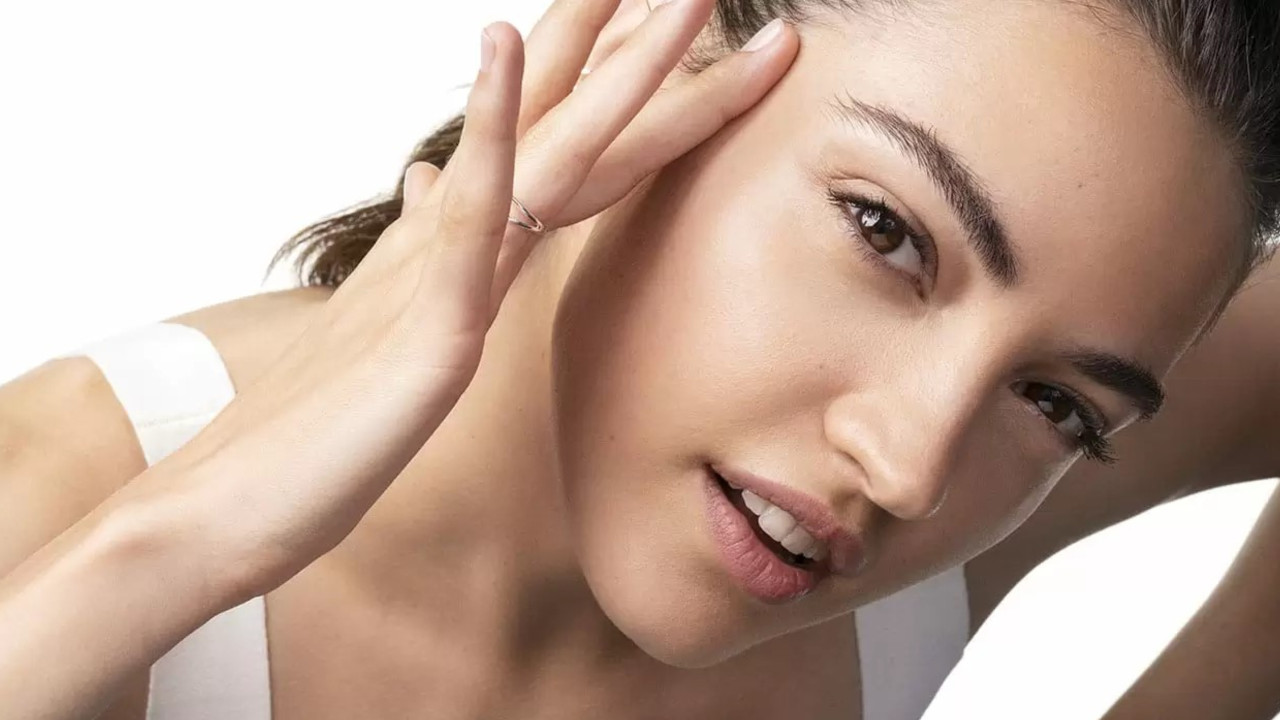How to Remove Pigmentation From Face Permanently Naturally at Home
Facial pigmentation, often characterized by dark spots, uneven skin tone, or discoloration, is a common skin concern affecting people of all ages and skin types. It can stem from various factors, including sun exposure, hormonal changes, inflammation, and underlying medical conditions.

For example, excessive sun exposure can lead to sunspots or melasma, while hormonal fluctuations during pregnancy or menopause might trigger hyperpigmentation. Inflammation from acne or other skin conditions can also result in post-inflammatory hyperpigmentation.
Though pigmentation itself is typically not a health risk, it can have a substantial impact on one’s self-esteem and confidence. Many individuals seek cosmetic treatments to even out their skin tone, ranging from topical creams and serums to laser therapies and chemical peels.
It’s essential to understand the underlying cause of pigmentation to choose the most effective treatment and adopt preventive measures, such as using sunscreen and maintaining a consistent skincare routine.
Understanding Facial Pigmentation
To effectively address facial pigmentation, it’s essential to grasp its underlying causes. The primary culprit is an overproduction of melanin, the pigment responsible for skin color. Factors contributing to this imbalance include:
- Sun exposure: Ultraviolet (UV) rays stimulate melanin production, leading to dark spots and uneven tone.
- Hormonal changes: Fluctuations in hormones, especially during pregnancy or menopause, can trigger pigmentation issues like melasma.
- Inflammation: Acne, eczema, or other skin irritations can result in post-inflammatory hyperpigmentation (PIH).
- Medications: Certain drugs can induce pigmentation as a side effect.
- Genetics: Predisposition to pigmentation can be inherited.
Understanding the root cause of your pigmentation is crucial for selecting appropriate treatment options.
Importance of Natural Remedies
While various medical and cosmetic treatments exist for facial pigmentation, many individuals prefer a natural approach. Natural remedies often harness the power of plant-based ingredients with gentle yet effective properties. They can help:
- Reduce pigmentation: By inhibiting melanin production or promoting skin cell turnover.
- Even out skin tone: By brightening the complexion and reducing dark spots.
- Improve skin texture: By providing hydration and nourishment.
- Minimize side effects: Compared to chemical treatments, natural remedies generally have fewer adverse reactions.
It’s important to note that natural remedies may require consistent use and patience to yield visible results. Consulting with a dermatologist or healthcare professional is advisable before starting any new skincare regimen, especially if you have underlying skin conditions.
What Causes Pigmentation on the Face?
Pigmentation, those pesky dark spots, and uneven skin tone can be a frustrating skin concern. Several factors contribute to its development:
- Sun Exposure: The primary culprit: Excessive sun exposure is the most common cause of pigmentation. UV rays stimulate melanin production, leading to dark spots and uneven skin tone.
- Hormonal Changes: Fluctuations matter: Hormonal imbalances, often experienced during pregnancy or menopause, can trigger pigmentation issues like melasma.
- Skin Inflammation: Healing aftermath: Acne, eczema, or other skin irritations can result in post-inflammatory hyperpigmentation (PIH).
- Age and Genetics: Time and family: As we age, our skin’s natural repair process slows down, contributing to pigmentation. Additionally, genetic predisposition plays a role in susceptibility to pigmentation.
Types of Facial Pigmentation
Common Types of Pigmentation:
- Melasma: These are brown or grayish-brown patches that often appear on the face, especially during pregnancy or due to hormonal changes.
- Freckles: These are small, flat brown spots caused by sun exposure.
- Sunspots (Lentigines): Larger, flat brown spots that develop with age and sun exposure.
Post-inflammatory hyperpigmentation (PIH): Dark spots that occur after acne, eczema, or other skin injuries heal. - Hyperpigmentation: A general term for any type of skin discoloration that is darker than the surrounding skin.
Factors Affecting Pigmentation:
- Sun exposure: The primary cause of most types of pigmentation.
- Hormonal changes: Often linked to melasma.
- Skin inflammation: Can lead to PIH.
- Age: Sun damage accumulates over time, leading to age spots.
- Genetics: Some people are more prone to pigmentation due to family history.
Ayurveda and Natural Remedies for Pigmentation
Ayurveda, the ancient Indian system of medicine, places great emphasis on holistic health and natural remedies. It aligns perfectly with the concept of using natural ingredients to address skin concerns like pigmentation.
How the remedies you mentioned fit into the Ayurvedic perspective:
1. Aloe Vera (Kumari):
- Ayurvedic properties: Cooling, soothing, and rejuvenating.
- Benefits for pigmentation: Balances Pitta dosha (responsible for inflammation), hydrates, and promotes skin regeneration.
How to use Aloe Vera?
- Extract the gel: Cut open an aloe vera leaf and scoop out the gel.
- Apply directly: Gently massage the gel onto your face.
- Leave on: Let it dry for 15-20 minutes before rinsing with lukewarm water.
- Frequency: Use twice daily for best results.
2. Lemon Juice (Nimbu):
- Ayurvedic properties: Cleansing, purifying, and brightening.
- Benefits for pigmentation: Rich in Vitamin C, helps to reduce melanin production and lighten dark spots.
How to use Lemon Juice and Honey?
- Mix ingredients: Combine equal parts of fresh lemon juice and raw honey.
- Apply to face: Gently massage the mixture onto your skin.
- Leave on: Let it sit for 10-15 minutes before rinsing with cold water.
- Frequency: Use once or twice a week, avoiding excessive sun exposure.
3. Turmeric (Haldi):
- Ayurvedic properties: Anti-inflammatory, antiseptic, and detoxifying.
- Benefits for pigmentation: Reduces inflammation, promotes skin clarity, and has a brightening effect.
How to use Turmeric?
- Make a paste: Mix turmeric powder with a little water or yogurt to form a paste.
- Apply to face: Spread the paste evenly on your skin.
- Leave on: Let it dry completely before rinsing with lukewarm water.
- Frequency: Use once or twice a week, as turmeric can stain skin.
4. Potato (Alu):
- Ayurvedic properties: Cooling, soothing, and lightening.
- Benefits for pigmentation: Helps to reduce skin discoloration and even out skin tone.
How to use Potato?
- Grate a potato: Grate a potato and extract the juice.
- Apply juice: Soak a cotton pad in the potato juice and apply it to your face.
- Leave on: Let it dry for 15-20 minutes before rinsing with water.
- Frequency: Use daily for best results.
5. Apple Cider Vinegar (Seeraka):
- Ayurvedic properties: Balancing, cleansing, and detoxifying.
- Benefits for pigmentation: Helps to restore skin’s pH balance, exfoliate, and improve skin texture.
How to use Apple Cider Vinegar?
- Dilute vinegar: Mix one part apple cider vinegar with two parts water.
- Apply to skin: Use a cotton pad to apply the diluted vinegar to your face.
- Rinse off: After a few minutes, rinse your face with water.
- Frequency: Use once or twice a week, as apple cider vinegar can be acidic.
6. Papaya (Papita):
- Ayurvedic properties: Digestive, cooling, and rejuvenating.
- Benefits for pigmentation: It contains enzymes that help exfoliate and brighten the skin.
How to use Papaya?
- Mash papaya: Mash ripe papaya to create a pulp.
- Apply to face: Gently apply the papaya pulp to your skin.
- Leave on: Let it sit for 15-20 minutes before rinsing with water.
- Frequency: Use twice or thrice a week.
7. Green Tea Extract (Hari Cha):
- Ayurvedic properties: Antioxidant, anti-inflammatory, and cooling.
- Benefits for pigmentation: Protects skin from damage, reduces inflammation, and promotes even skin tone.
How to use Green Tea Extract?
- Brew green tea: Steep a green tea bag in hot water for a few minutes.
- Cool and apply: Let the tea cool down and then apply it to your face with a cotton pad.
- Leave on: Allow the tea to dry before rinsing with water.
- Frequency: Use twice daily for best results.
8. Yogurt (Dadhi):
- Ayurvedic properties: Cooling, soothing, and nourishing.
- Benefits for pigmentation: Hydrates, soothes, and gently exfoliates the skin.
How to use Yogurt and Oatmeal?
- Make a mask: Combine plain yogurt and ground oatmeal to create a paste.
- Apply to face: Gently massage the mask onto your skin.
- Leave on: Let it dry for 15-20 minutes before rinsing with lukewarm water.
- Frequency: Use once or twice a week.
Remember:
- Patch test: Always test any new remedy on a small area of your skin before applying it to your face.
- Sun protection: Use sunscreen to protect your skin from further pigmentation.
- Consistency: Regular use is essential for achieving desired results.
- Consult a dermatologist: If you have severe pigmentation or underlying skin conditions, consult a dermatologist for professional advice.
Note: While these ingredients are generally safe and beneficial, it’s essential to consider your specific Ayurvedic constitution (Dosha) before incorporating them into your routine.
Consulting with an Ayurvedic practitioner can provide personalized guidance.
Tips for Reducing Pigmentation Naturally
Lifestyle factors play a crucial role in managing pigmentation:
- Sun Protection: Shield your skin: Consistent use of broad-spectrum sunscreen with an SPF of 30 or higher is essential.
- Protective clothing: Wear hats, sunglasses, and long sleeves when exposed to the sun. In peak hours, Avoid prolonged sun exposure during peak hours (10 AM to 4 PM).
- Healthy Diet: Antioxidant-rich foods: Incorporate fruits, vegetables, and nuts rich in antioxidants to combat free radicals.
- Vitamins and minerals: Ensure adequate intake of vitamins C, E, and B complex for skin health.
- Hydration: Drink plenty of water to keep your skin hydrated from within.
- Moisturize: Use a gentle, oil-free moisturizer to keep your skin hydrated.
- Humidifier: Consider using a humidifier, especially in dry climates.
By combining these with the natural remedies, you can significantly improve your skin’s appearance and reduce pigmentation.
Lifestyle Changes to Prevent Pigmentation
Adopting a holistic approach to skincare can significantly reduce the risk of pigmentation. Here are some key lifestyle changes:
1. Regular Skincare Routine
- Cleansing: Gently remove dirt and impurities without stripping the skin.
- Exfoliation: Regularly remove dead skin cells to promote cell turnover.
- Moisturization: Keep your skin hydrated to maintain its barrier function.
- Sunscreen: Apply broad-spectrum sunscreen daily, even on cloudy days.
2. Balanced Diet
- Antioxidant-rich foods: Consume fruits, vegetables, and nuts to protect skin from damage.
- Hydration: Drink plenty of water to keep your skin hydrated from within.
- Limit processed foods: Reduce intake of sugary and processed foods that can contribute to inflammation.
3. Avoiding Stress
- Stress management: Practice relaxation techniques like yoga, meditation, or deep breathing.
- Adequate sleep: Get enough restful sleep to allow your skin to repair itself.
By incorporating these lifestyle changes into your daily routine, you can help prevent pigmentation and promote overall skin health.
When to See a Dermatologist?
While natural remedies can be effective for mild pigmentation, there are instances when consulting a dermatologist is essential:
1. Persistent Pigmentation
- Unresponsive to treatment: If pigmentation doesn’t improve despite consistent use of natural remedies and lifestyle changes, it’s time to seek professional advice.
- Rapid or extensive spread: If pigmentation is spreading rapidly or covering a large area of your skin, consult a dermatologist for proper diagnosis and treatment.
2. Severe Skin Reactions
- Allergic reactions: If you experience severe allergic reactions, such as swelling, blistering, or difficulty breathing, seek medical attention immediately.
- Worsening skin conditions: If you have underlying skin conditions like eczema or psoriasis, and pigmentation is worsening, consult a dermatologist for guidance.
A dermatologist can provide accurate diagnosis, recommend appropriate treatments, and address any underlying medical issues contributing to pigmentation.
FAQs
1. Can pigmentation be removed permanently?
Yes, with consistent use of natural remedies and proper skincare, pigmentation can be significantly reduced and sometimes permanently removed.
2. How long does it take to see results with natural remedies?
It varies, but you may start to see improvements within a few weeks. Patience and consistency are key.
3. Are there any side effects of using natural remedies?
Generally, natural remedies are safe, but it’s important to do a patch test first to ensure you don’t have an allergic reaction.
4. Can diet affect skin pigmentation?
Absolutely. A balanced diet rich in antioxidants can help reduce pigmentation and improve overall skin health.
5. What is the best natural remedy for pigmentation?
There’s no one-size-fits-all answer, but aloe vera, turmeric, and lemon juice are among the most effective natural remedies.
6. Can stress cause pigmentation?
Yes, stress can lead to hormonal imbalances which may increase melanin production, resulting in pigmentation.
7. Is it safe to use lemon juice on the skin daily?
Using lemon juice daily can be harsh and potentially irritating due to its acidic nature. It’s best to use it in moderation and always follow up with a moisturizer.
8. Can pigmentation be a sign of an underlying health issue?
In some cases, pigmentation can indicate underlying health issues like hormonal imbalances or skin conditions. If you’re concerned, it’s best to consult a dermatologist.
9. Is pigmentation more common in certain skin types?
Yes, pigmentation issues are often more common in people with darker skin tones due to higher melanin levels.
10. Are over-the-counter creams effective for pigmentation?
Some over-the-counter creams can be effective, especially those containing ingredients like hydroquinone, glycolic acid, or retinoids. However, it’s always best to consult with a dermatologist before starting any new treatment.
11. Can exfoliating help reduce pigmentation?
Yes, regular exfoliation can help remove dead skin cells and promote the growth of new, even-toned skin.
12. How can I prevent pigmentation from returning?
To prevent pigmentation from returning, maintain a consistent skincare routine, use sunscreen daily, and avoid direct sun exposure.
13. Are natural remedies as effective as professional treatments?
Natural remedies can be effective for mild to moderate pigmentation. However, for severe cases, professional treatments like laser therapy or chemical peels may be more effective.
14. Can pigmentation affect any part of the body?
Yes, while facial pigmentation is common, it can affect any part of the body that is exposed to the sun or experiences hormonal changes or inflammation.
15. Is it normal for pigmentation to get worse before it gets better?
Sometimes, as the skin begins to renew itself and old skin cells are shed, pigmentation can appear more prominent before it starts to fade.
While it’s challenging to completely eliminate pigmentation permanently, consistent and proper care can significantly reduce its appearance and prevent further darkening.


























